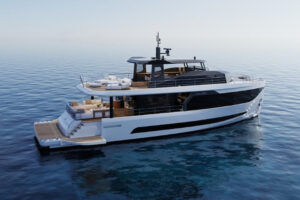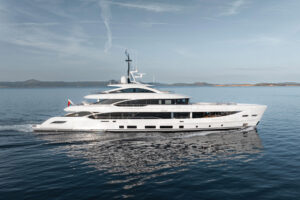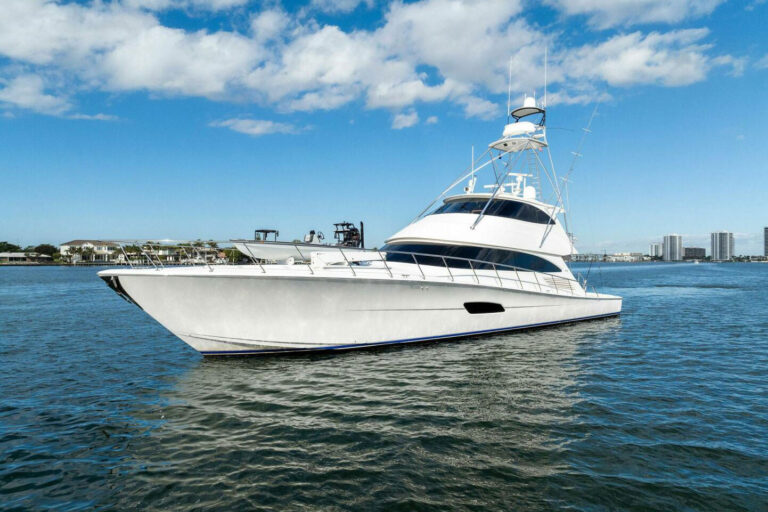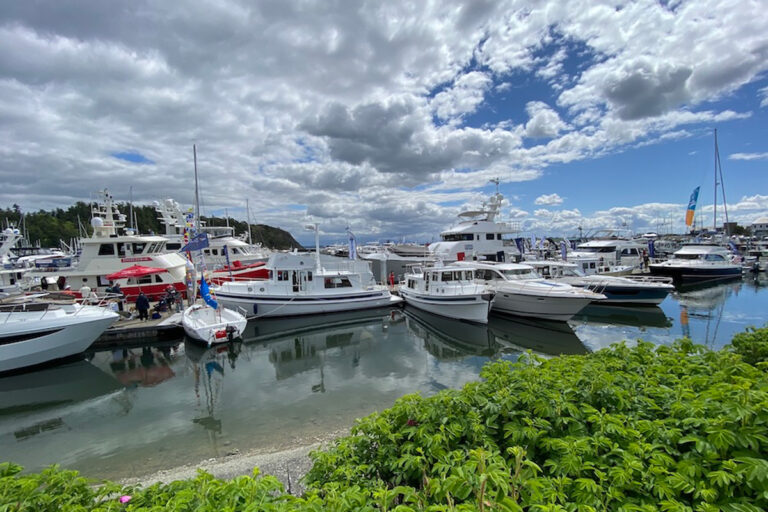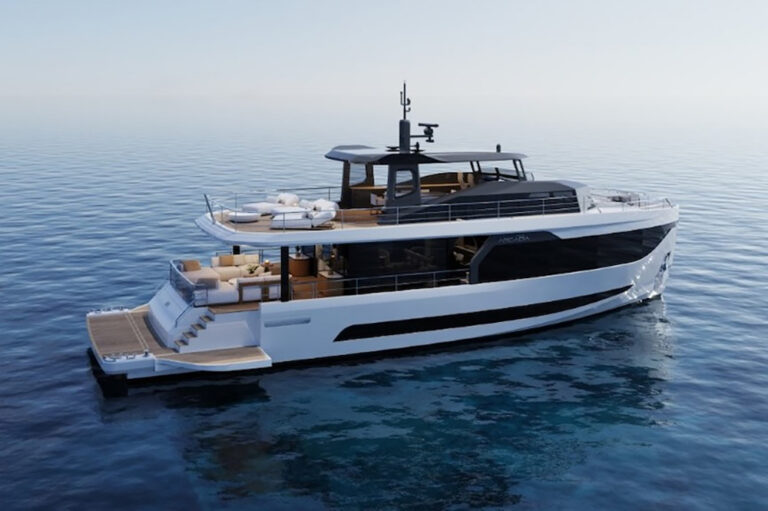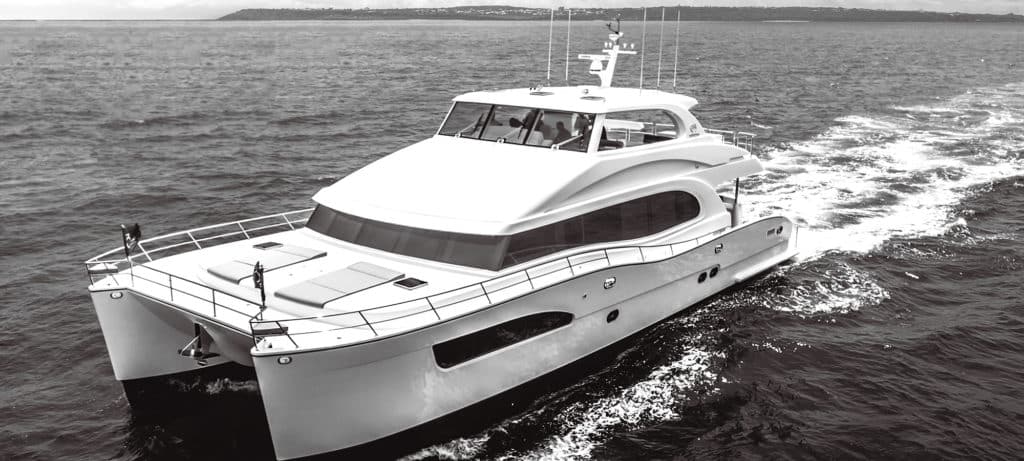
The first thing to catch my gaze on the PC74 from Horizon Power Catamarans was the high freeboard forward. It sloped aft, gently, via an unbroken sheer line that was curved like a wave. It was the kind of styling that I’m used to seeing on monohull power yachts, not on twin-hull designs. As it turns out, my response was exactly what Stuart Hegerstrom had hoped to achieve. As founder and director of The Powercat Company, a Horizon Power Catamarans distributor, he had long believed that catamaran builders needed to design their yachts to more stylish standards. “The boats were very boxy,” he says, based on his years of experience with cats in the charter market. He and his partner, Richard Ford, asked Horizon to produce models that had high-end finishes and looked good inside and out.
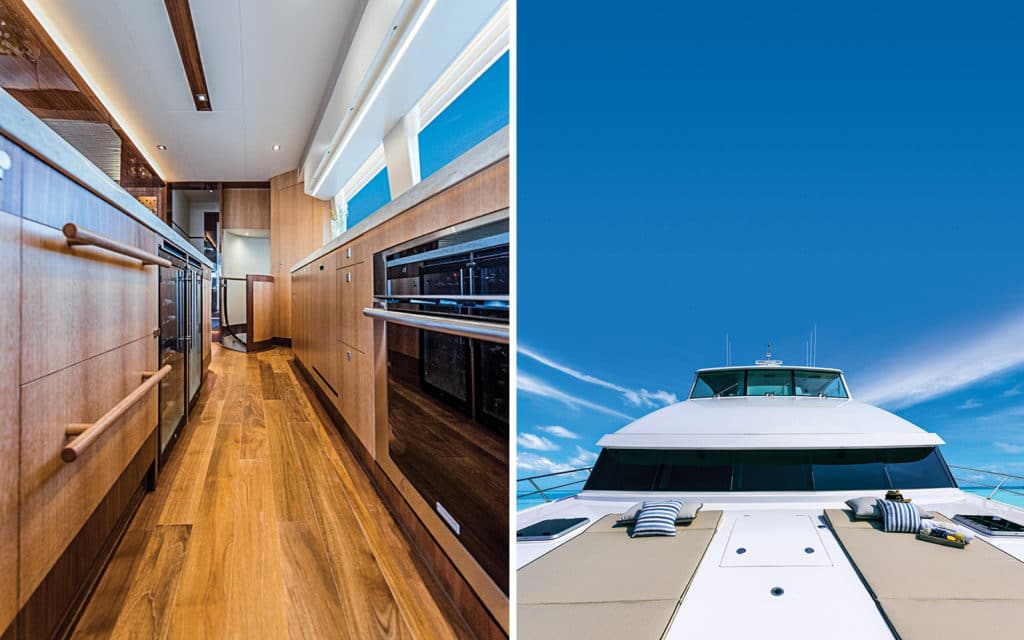
The Horizon team brought in mega-yacht designer JC Espinosa to work with its own craftsmen. The result aboard the PC74 is a catamaran with exterior styling, layout and functionality that should appeal to private and charter owners alike.
“The PC74 offers the interior and deck space like a yacht in the 80- to 100-foot range,” Hegerstrom says. “It’s perfect for cruising the Bahamas and Caribbean.”
The yacht’s 28-foot-4-inch beam allows for numerous gathering places where guests can chill and mingle. On the main deck, unobstructed views from the aft deck to the forward bulkhead add to the wide-open feel. Sliding doors aft disappear into the bulwarks, and side windows enhance all-around views.
In the salon, a leather-upholstered, L-shaped sofa runs along the port side, with swivel barrel chairs and a high-gloss walnut table. Across from there is a two-tiered bar with four bar stools that have footrests — a nice touch. Behind the bar is the galley, with a Sub-Zero fridge, freezer drawers, Electrolux five-burner ceramic cooktop, Miele dishwasher, double Summit wine chillers and more, all concealed behind light-oak cabinetry. The galley’s location amidships keeps it near the aft deck dining and the forward eight-person dining table; on charter, the location lets the chef give cooking lessons for fun.
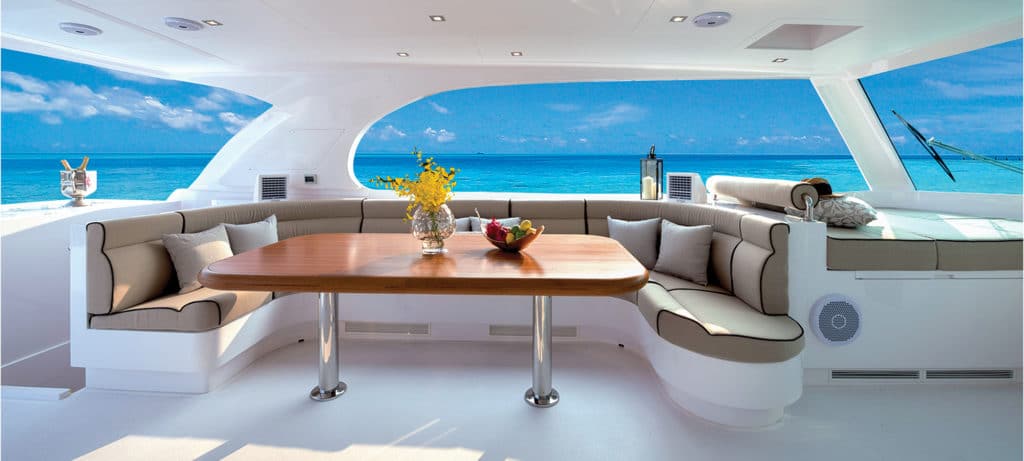
Flying High
The main-deck master is forward with a panoramic view, a centerline king berth, and windows on three sides with electric blinds. Owners can style the area however they like, Hegerstrom says, including adding a private lounge, different fabrics and woods, and more.
Walnut trim, burl inlays in the cabinets, a fabric-covered tray ceiling, a pop-up TV, a vanity, a double sofa with ottoman and recessed lighting were all part of this PC74’s master, which also included an en suite head with a surprisingly sizable shower for a yacht of this length overall (again, the catamaran beam allows for such design choices).
Guest staterooms are down a set of stairs from the main deck forward. Each pontoon’s hull has two staterooms. The forepeak staterooms have king-size berths that face the hullside windows, allowing for ambient lighting as well as commanding views. The after staterooms aboard the PC74 that we toured were set up in two ways: one with single berths and the other with a double plus a single. All were en suite.
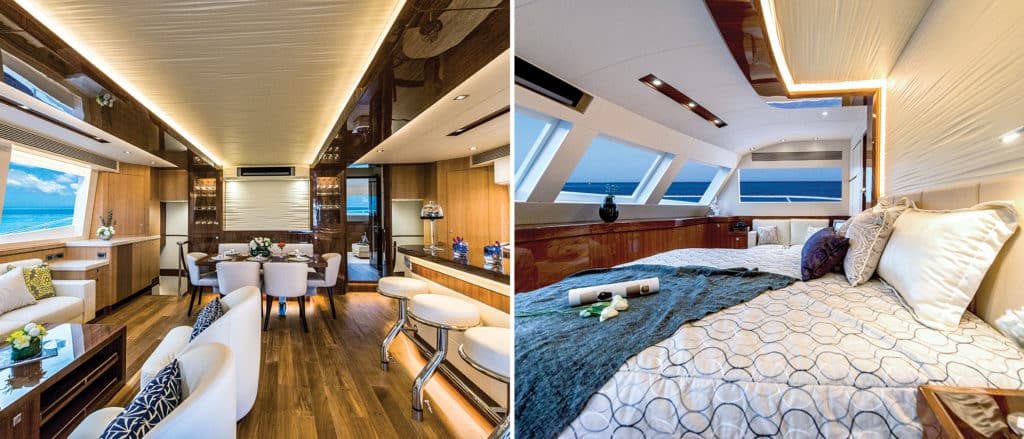
Efficiency and performance were part of the PC74’s design brief, with Lavranos Marine Design in New Zealand handling naval architecture. Based on what I experienced in 2- to 3-foot froth-tipped waves, I can say that Lavranos did a solid job on stability. Powered with twin 1,150 hp Caterpillar C18 ACERT diesels and running at 12.4 to 22.4 knots, the PC74 barely registered a jar. There was no heavy fore-aft pitchpoling heading into the seas, and side motion was noticeably less than it would have been aboard a same-size monohull. Tight turns were relatively flat, with no digging of the hulls or lurching. Fuel economy ranged from 35 gph at 12.4 knots to 120 gph at top speed.
While the PC74’s exterior styling was the first thing I noticed, it’s not the only thing I’ll remember following this daylong sea trial. I can only imagine everything owners and charter guests will find to like about this yacht after spending a week or more aboard.
At the Con
The PC74’s flybridge helm accommodates three 22-inch Garmin multifunction displays. Other combinations also work: Caterpillar engine displays, Garmin digital logs, throttle controls, a thruster joystick, a trim-tab indicator and more will fit. Twin Stidd helm chairs, a portside lounge and a starboard-side twin bench seat let the captain mingle with guests.
Hidden Treasure
The PC74 has dedicated stowage for 12 dive tanks and more, with lockers in the forward bows, in-deck aft, at a command station on the cockpit’s starboard-side, in a TV cabinet on the aft deck, and inside a day-head on the flybridge. Side decks about 18 inches wide make transiting fore and aft a breeze. Twin foredeck lounges have a center umbrella to shade everyone from the sun at high noon.


